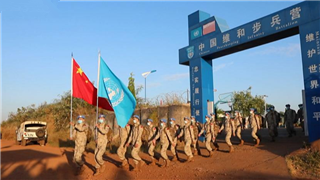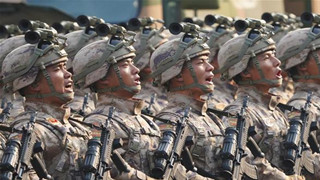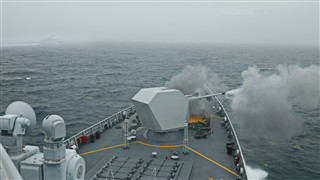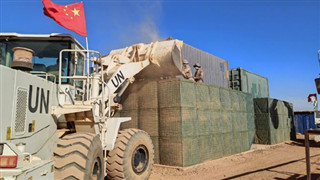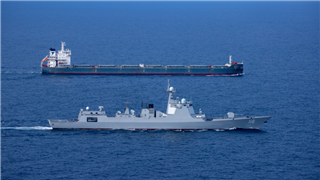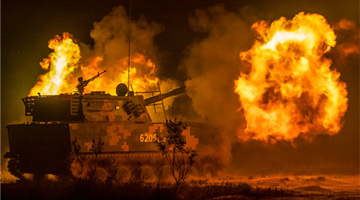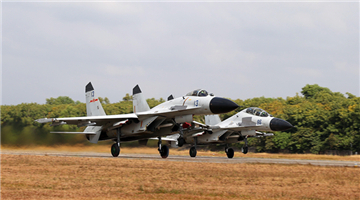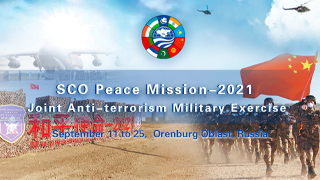By Lian Degui
The US Senate confirmed on December 18 more than 30 ambassadors and national security nominees proposed by the Biden administration, including the appointment of Obama’s White House Chief of Staff Rahm Emanuel as US ambassador to Japan. Several Republican senators, including ranking member of the Senate Foreign Relations Committee Jim Risch, voted in favor of the appointment on the ground that they expected Emanuel to oppose the proposal in the White House to announce America’s willingness to “no-first-use of nuclear weapons”.
The Japanese side has paid close attention to this proposal. Taro Kono, Director of the Liberal Democratic Party Public Affairs Department, expressed his concerns about the policy of no-first-use nuclear policy under discussion by the Biden administration at an online meeting of American think tanks on December 7, saying the proposal might send a wrong signal to China and the DPRK.
In fact, the US has been assessing its strategic advantages in order to decide which nuclear policy is more secure and effective. The US deployed nuclear weapons in ROK as early as 1957 with the aim of fending off attacks from the DPRK, vowing to retaliate with nuclear attacks if the DPRK dared to make a dangerous move amid the unbalanced South-North military landscape on the Korean peninsula. It’s clear that the first-use of nuclear weapons is essentially a kind of nuclear deterrence and blackmailing.
During the Cold War period, the US was unable to destroy the Soviet Union because Moscow had enough nuclear warheads. Therefore, using nuclear weapons first wouldn’t pose any valid threat to the Soviet Union, but would instead bring itself a lethal blow. That’s why there was discussion then in the US about whether they should give up the first-use policy to avoid a nuclear war.
Now the US is once again feeling obvious changes in the balance of power, and the first-use of nuclear weapons has lost its function as an effective deterrence. The report titled The Future of U.S. Nuclear Weapons Policy released by the Committee on International Security and Arms Control of the National Academy of Sciences pointed out that the greatest nuclear risk facing the US after the Cold War is not an intentional nuclear war with Russia, but unintended nuclear war or proliferation. Since America’s only purpose of deploying nuclear weapons is to counter any nuclear attack against itself and its allies, it should announce the no-first-use of nuclear weapons.
But Japan worries very much about this tendency in the US. Japan’s Chief Cabinet Secretary Hirokazu Matsuno said the “no-first-use” policy is meaningless unless all nuclear weapon states declare to practice it simultaneously. The Japanese side reckoned that if the US announced to adopt this policy, its function as a nuclear umbrella would be lost.
Actually, what Japan is truly worried about is Okinawa. Japanese military experts warned that America and Japan’s interference in the Taiwan question would first court a catastrophe to their military base in Okinawa, and Tokyo is worried that if the US commits to the “no-first-use” policy, they would be unable to respond to China’s hypersonic weapons.
Evidently, when Japan adopted the no-nuclear policy as “the only country subject to nuclear attacks”, it actually opposed the possession of nuclear weapons by any other country than the US. A country that was hit by the US’s nuclear bombs is now relying on its nuclear protection and making nuclear deterrence with its “first-use” policy – how ironic!
What’s worth more attention is that Japan has never given up its nuclear ambition. Masasuke Omori, former director-general of the Cabinet Legislation Bureau, once said in the Senate that Japan could have a necessary, minimal scale of nuclear weapons for the purpose of self-defense. Now Japan is technically capable of manufacturing nuclear weapons, but whether it will get down that path will depend on whether the US-Japan alliance can guarantee its security and whether America’s “nuclear protection” is reliable enough. If Japan doesn’t think so, it would revise the constitution and arm itself with nuclear weapons on the excuse of security – the same excuse it is using now to discuss strengthening the capability of taking preemptive steps to attack enemy bases.
(The author is director and professor at the School of Japanese Studies, Shanghai International Studies University)
Editor's note: This article is originally published on huanqiu.com, and is translated from Chinese into English and edited by the China Military Online. The information, ideas or opinions appearing in this article do not necessarily reflect the views of eng.chinamil.com.cn.
